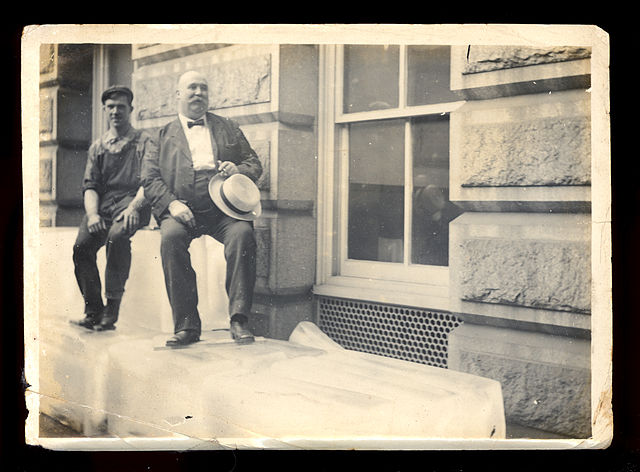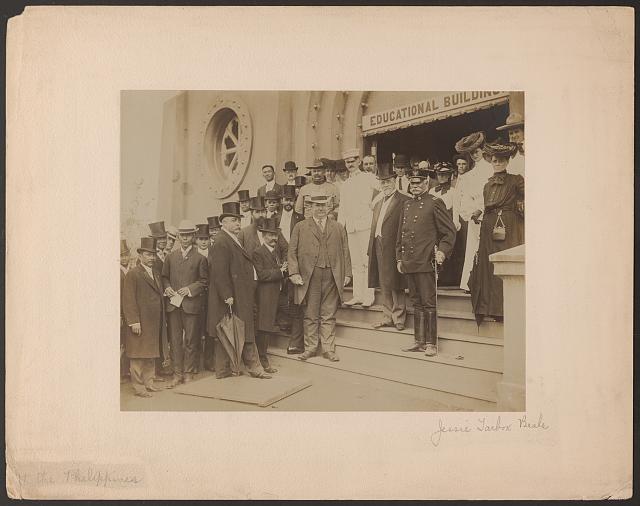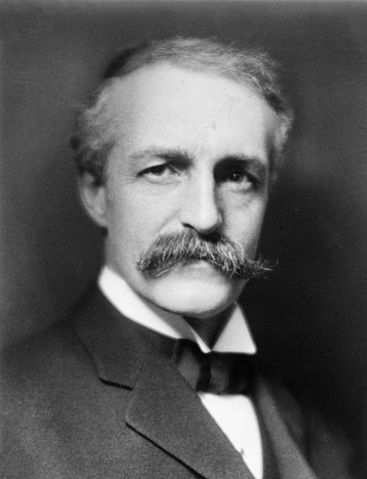Taft's critics derided his approach to foreign policy as "dollar diplomacy" that would eventually cost the U.S. more than it delivered in terms of influence; however, they were concerned about the administration's domestic policy as well. Some of the main domestic issues of the Taft era are outlined below.
Trust Busting
Manns-Elkins Act and Tariffs
Domestic Scandal
 |
| Taft tried to improve the situation of laborers during the age of monopolies. |
Taft litigated against Standard Oil and American Tobacco during his term in office and reduced the size of hundreds of other major conglomerates of the period. Instead of supporting his former protege, however, Teddy Roosevelt accused him of not being able to distinguish between "good" and "bad" trusts. In any case, Taft's constant negative interactions with the corporate elite wore him down. He claimed that his eventual unwillingness to continue a focus on trust-busting stemmed from a "narrow interpretation of presidential power." However, his apparent lack of resolve lost him the support of most Republican progressives.
 |
| Taft had established close relations with business interests in Manila |
The Mann-Elkins Act of 1910 gave the Interstate Commerce Commission the power to set railway fees and to suspend rate hikes. The ICC also supervised the rate schedules of telephones, telegraphs, and radio. Taft added 35,000 postmasters and 20,000 skilled workers to the ranks of the civil service and presided over the admission of Arizona and New Mexico to the union. He also tried to remove the tariffs from Philippines sugar exports. However, his bill was amended by several Senators to support business interests located within their respective states. Although the progressive members of the Republican party had hoped he would simply veto the bill, Taft signed it, preferring to avoid conflict with Knox and other conservatives within his administration.
 |
| Gifford Pinchot was in charge of protecting the Alaskan forests. He was fired by Taft after criticizing the mining concessions. |
There was also a scandal that impacted Taft's domestic policies. The Secretary of the Interior had made federal land in Alaska available for coal mining. Public sentiment was divided about whether the environment was more important than mining, but generally speaking this event led to mistrust concerning Taft's willingness to provide concessions to big business interests. Taft also implemented regulations that allowed the government to block the sale of federal land and substantially expanded protected areas.
What happened on the domestic front during Taft's presidency? Use the questions below to review.
Choose the MAIN reason why Taft stopped pursuing antitrust cases?
Taft's antitrust policies were counter-productive in terms of 'dollar diplomacy'.
Taft's antitrust policies were counter-productive in terms of 'dollar diplomacy'.
Taft's antitrust policies were counter-productive in terms of 'dollar diplomacy'.
What was the MAIN reason why Taft's efforts to reduce tariffs failed?
US businesses opposed the tariff measures and several Senators 'watered it down'.
US businesses opposed the tariff measures and several Senators 'watered it down'.
US businesses opposed the tariff measures and several Senators 'watered it down'.
What was the result of the scandal in Alaska?
Taft's decisions seemed to favor mining concessions more than forest conservation.
Taft's decisions seemed to favor mining concessions more than forest conservation.
Taft's decisions seemed to favor mining concessions more than forest conservation.
You got # out of # correct. Click the Retry button for another attempt.
You got a perfect score. Great job!
